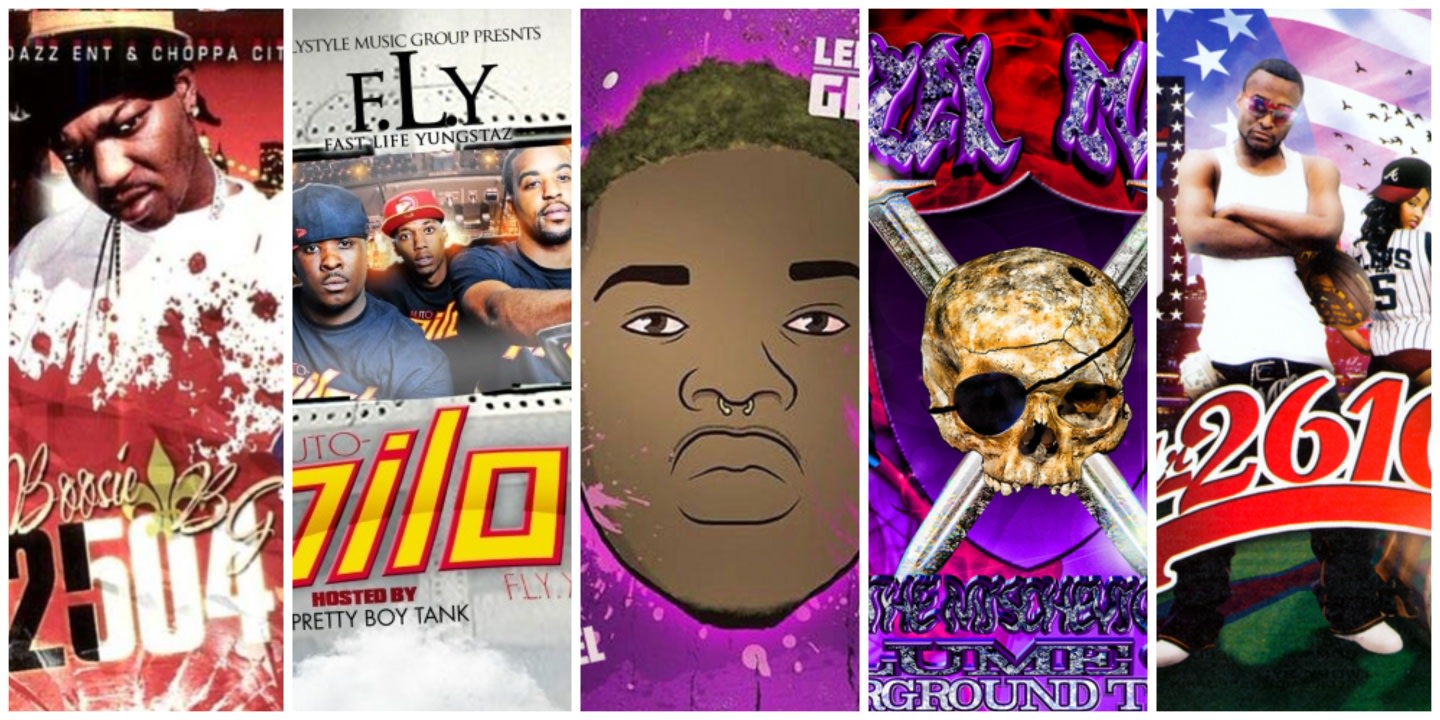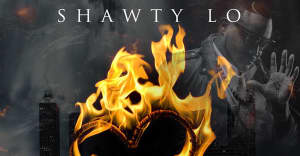
Online music is inherently precarious — if a physical recording of something is never made, it’s dangerously easy to erase any sign that it ever existed. With mass layoffs in the wake of Bandcamp’s sale from Epic Games to Songtradr, as well as the recent announcement that Soundcloud is seeking a buyer in a potentially billion-dollar deal, there are understandable concerns about the future of the music that’s been uploaded on those platforms. The internet often lulls us into a false sense of security where we presume that hosted content will always be accessible and available, without any need to acquire a copy for yourself. The troubled fate of DatPiff has been a case study in the necessity of backing up your music: after the company’s servers went offline last year, DatPiff announced a partnership with the Internet Archive to bring its extensive collection of rap mixtapes to the free digital library. After months of uncertainty, around 50 terabytes of rap music were uploaded to the “DATPIFF Hip-Hop Mixtape Archives” this past December.
The Internet Archive largely developed as a music database thanks to fans of the Grateful Dead, who have long used the site to share live recordings and bootlegs. Though at divergent ends of the musical spectrum, there’s something of a spiritual kinship between hip-hop heads and Deadheads in their tendency to become amateur archivists, possessed by the need for every demo and leak that exists. Like differing renditions of “Dark Star,” the version of, say, “Make The Trap Say Aye” mixed by Supastar J Kwik on Gucci Mane’s So Icey Boy is its own object and experience, separate from the studio quality version.
Back in the day, the sometimes janky audio quality and mislabeled metadata that accompanied mixtapes might have been sources of frustration. But with the passage of time and a few hits of nostalgia, those flaws have become part of the material appeal of the medium, like the crackle of vinyl or the hiss of a cassette tape, reminders that the music you’re listening to is a product of human hands and not just algorithm-generated. Mixtapes might have been free, but you still had to work for them in some way, whether sifting through pages of new uploads, or editing track listings so your iTunes didn’t get too messy.
There’s still more of that work to be done today: mixtapes from Lil Wayne, Gucci Mane, and 50 Cent might rightfully be recognized as some of those artists’ best work, but there are more hidden gems to be recovered from the data dump. Here are 5 essential but overlooked mixtapes from the DatPiff archives that aren’t available on other streaming platforms.
Shawty Lo, Mr. 2610 (2009)

The members of Atlanta’s D4L might have been more successful nationally as a collective, but Shawty Lo and Fabo were underground icons in the South thanks to their steady stream of solo mixtapes. Shawty Lo’s career was tragically cut short by his sudden death in 2016, but as the godfather of snap music, he was a vital architect of the modern Atlanta sound and mentor to countless artists from the city. In hindsight, it’s genuinely surprising that Shawty Lo didn’t cross over more as a solo artist, given how many heavyweights show up on a mixtape like Mr. 2610, from Lil’ Wayne to Lil’ Kim. While he dabbles with a harder trap sound, Shawty Lo also swings for the fences with unapologetic pop, like the Coldplay-interpolating “Roll the Dice” — a song that also served as a peace treaty in Lo’s overblown feud with T.I.
Boosie Badazz & B.G., 225 504 (2010)

Louisiana loves its outlaws, and few rappers from the state have played by their own rules as defiantly as Boosie and B.G. After co-founding the Hot Boyz, B.G. broke from the group — and the stifling influence of Birdman — to make a name on his own as an independent. Boosie’s frequently problematic history of speaking his mind needs no introduction; his complete willingness to say some absolutely crazy shit is what made him such an evocative lyricist, but it’s also been the downfall of his reputation. In classic mixtape fashion, 225 504 is comprised more of solo tracks from both artists than actual collaborations, but it’s an effective time capsule of some of the most memorable Boosie deep cuts that haven’t made the jump to streaming, like “iPhone,” a throwback to that era when everyone was obsessed with jailbreaking their smartphone. Befitting a tape from two Louisiana legends, 225 504 is heavy on the cajun flavor, as the duo play matching drum majors to a second line on “Louisiana’s Finest.” If Boosie wasn’t prone to bigoted outbursts when handed an open mic, I would do something nasty to hear a Tiny Desk Concert version of the down-home accordion jam on “Zydeco.”
F.L.Y. (Fast Life Yungstaz), Autopilot (2010)

Characterizing Fast Life Yungstaz as a “one-hit wonder” feels unfair, given how iconic and epochal that one hit is: “Swag Surfin’” belongs in some kind of new American songbook, a modern jock jam that’s become a tradition unto itself at HBCU gamedays. While the group’s relatively slim catalog is inevitably overshadowed by that signature song, F.L.Y. deserve more credit for their playfully ecstatic pop-rap fusion. Their simile-heavy wordplay might seem formulaic, but there’s an absurdity to their lyrical imagery that’s complemented by their hyper-melodic delivery and drumline-influenced sound: everything is plastic and over-the-top like the sugar rush of a Saturday morning cartoon. The beachside motif of “Swag Surfin’” continues on the Beach Boys flip “Get Around,” which almost posits F.L.Y. as a modern-day boy band under the boardwalk, the Rae Sremmurd of the ringtone rap era.
Denzel Curry, King of the Mischievous South, Volume One (2012)

Before he was a critical darling flirting with jazz rap, Denzel Curry ran with the chopped-and-screwed denizens of Raider Klan, extracting Southern rap pastiche from a sludgy abyss of bad trips and videotapes. Like the Adult Swim cartoons that SpaceGhostPurrp paid homage to, Raider Klan mixtapes felt like they could only exist after a certain hour of the night, a bleary shape-shifting nightmare whose outline your eyes strained to make out in the dark. Even on his earliest projects, Denzel Curry is a cut above his peers when it came to the actual act of rapping, and his tongue-twisting flow has only sharpened with years of practice. In spite of the blown-out distortion, Denzel was always something of a rap traditionalist with backpacker tendencies; for every Memphis rap sample on King of the Mischievous South, there’s a dusty boom bap beat that Method Man wouldn’t sound out of place on. Denzel might have outgrown his lo-fi roots, but its legacy can still be heard in the international explosion of phonk music.
Leek-E-Leek, Geekin 3 (2016)

Leek-E-Leek is one of the most undersung pioneers of Chicago drill, both as a producer and rapper: the words “It’s a Leek-E-Leek Banger” announced countless early tracks from the likes of Chief Keef, King Louie, and Lil Durk. But Chicago rap is more than just drill, and Leek-E-Leek was more than just a drill artist: his beats were also crucial to the development of bop music, by way of regionally viral dance trends like “The DLow Shuffle, Part 2.” On Geekin 3, the last full-length mixtape Leek-E-Leek released before his death in 2018, he shines not just as a beatmaker but as a vocalist, with an auto-tuned flow that still sounds fresh in 2024. His voice mutates from song to song: on the mosh-ready “Check,” he conducts the crowd with a blunted growl, while in other moments he mumbles and even wails. Though he sometimes channels a sense of Future-esque ennui, Leek-E-Leek sounds most himself on up-tempo bop bangers like “Long Enough,” a euphoric celebration of his success.
Rap Column is a column about rap music by Vivian Medithi and Nadine Smith for The FADER.
